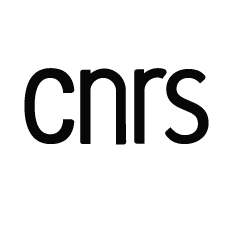Simplifier les textes : quels critères linguistiques pour quel public ? - Easy language: linguistic criteria and target group
Journée d'études
Université de Lille - Campus de Pont de Bois - Maison de la Recherche, salle des colloques
Qui sommes-nous ?
MigraLang est un programme de recherche qui se consacre à l’étude des langues et de la communication dans l’accompagnement des publics migrants en France, notamment dans la métropole lilloise, et en Europe. Le projet est porté par une équipe de recherche pluridisciplinaire de l’Université de Lille, formée de chercheuses en Sciences du Langage, Sociologie, Anthropologie et Psychologie (Laboratoire Savoirs, Textes, Langage : Emmanuelle Canut, Juliette Delahaie, Sabrina Royer et Céline Beaugrand ; laboratoire Clersé : Judith Hayem et Stéphanie Pryen ; Laboratoire Psitec : Nathalie Lionet et Maïté Brunel).
About us
The MigraLang project is led by a multidisciplinary research team from the University of Lille, made up of researchers in Language Sciences, Sociology, Anthropology and Psychology (Savoirs, Textes, Langage laboratory, Emmanuelle Canut, Juliette Delahaie, Sabrina Royer and Céline Beaugrand; Clersé laboratory, Judith Hayem and Stéphanie Pryen; Psitec laboratory, Nathalie Lionet and Maïté Brunel).
MigraLang is a research programme dedicated to the study of languages and communication in the support of migrant populations in France, particularly in the Lille metropolitan area, and in Europe.
The quality of communication plays a role in the process of vulnerability or, on the contrary, in improving the inclusion of these groups in society: what are the tools used, interpreting, speeches/texts adapted in "easy-to-read and understand French" ; what are the specific professional habits which enable newcomer migrants to understand and grasp the challenges of inclusion in French society? Based on a multi-disciplinary methodology, different dimensions of integration are taken into account: language learning, legal and social support, medical and psychological follow-up, housing and professional integration.
PROGRAMME Program
8h30. Accueil Welcome and opening remarks
9h - 9h30.
Emmanuelle CANUT & Juliette DELAHAIE, Université de Lille, STL.
Easy language: linguistic criteria and target group (introduction)
Simplifier les textes : quels critères linguistiques pour quel public ? Introduction
9h30-10h30.
Camilla LINDHOLML & Leealaura LESKELA, Tampere University & University of
Helsinki, Finlande.
Producing Easy Language for different target groups – the art of compromise
Utiliser le langage simplifié pour différents publics – l’art du compromis
10h30-10h45. Pause café Coffee Break
10h45-11h45.
Julia FUCHS, Leipzig University, Allemagne & STL.
Realising causal relations in an addressee-oriented manner in German Easy
Language. State of research and perspectives.
Exprimer des relations causales de manière adaptée au destinataire en langage
facile allemand. État de la recherche et perspectives
11h45-12h45.
Rémi CARDON, Université Catholique de Louvain, Belgique.
Corpus et ressources pour la simplification automatique de textes : la place
du public cible
Corpora and resources for automatic text simplification: the role of the target
audience
12h45-14h15. Pause déjeuner Lunch Break
14h15-15h.
Ludivine JAVOUREY-DREVET, Université de Lille, SCALab
An example of implementing text simplification to improve the fluency and
comprehension of learner readers
Exemple de mise en oeuvre de la simplification de textes pour améliorer la
fluidité et la compréhension des apprentis-lecteurs
15h-15h45.
Giulia LOMBARDI, Université de Genova, Italie.
Strategies to enhance migrants' comprehension of administrative texts:
focus on text or reader
Stratégies visant à améliorer la compréhension des textes administratifs par
les migrants : focus sur le texte ou sur le lecteur
15h45-16h. Pause café Coffee Break
16h-16h45.
Magali HUSIANYCIA, AsFoReL & ATILF-Université de Lorraine.
Collection Alt&rité. Des histoires pour apprendre à lire et à écrire en français
Alt&rité book collection. Stories to learn how to read and write in French
16h45-17h30.
Lucie VILLERT, Université de Lille, Sciences du langage/DDL FLE.
Réécriture de documents d'accueil destinés à des mineurs étrangers en
établissement pénitentiaire : objectifs et règles de transformation
Rewriting documents for foreign minors in penal institutions: objectives and
transformation rules
17h30-18h Temps d’échanges et conclusion / General Discussion and
Conclusion
